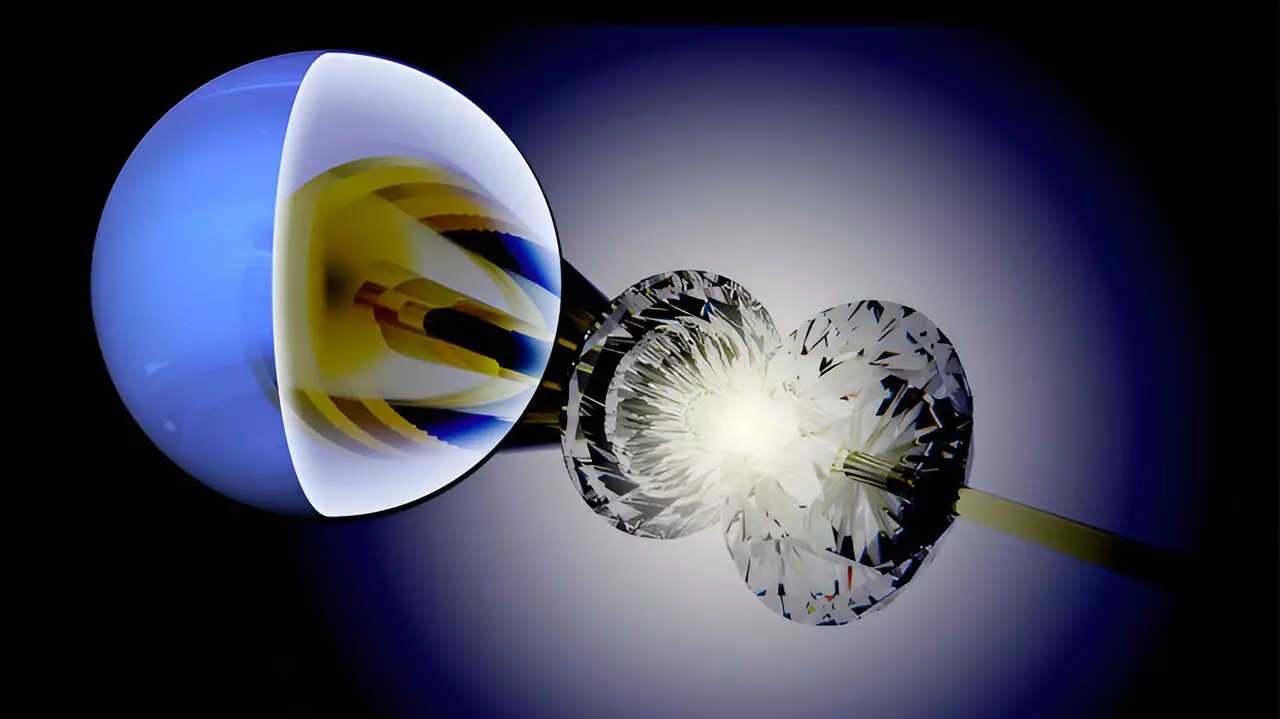

Equation of state measurements are a crucial aspect of understanding the behavior of materials under extreme pressure conditions. A recent paper published in the Journal of Applied Physics highlights the collaborative efforts of scientists from Lawrence Livermore National Laboratory, Argonne National Laboratory, and Deutsches Elektronen-Synchrotron in developing a new sample configuration that significantly enhances the reliability of equation of state measurements in a pressure regime previously unattainable using the diamond anvil cell technique.
The researchers involved in this study focused on improving the sample fabrication process to enable complex experiments involving static compression at pressures exceeding 300 GPa. This pressure range presents significant challenges in terms of maintaining an ideal compression environment, which directly impacts the quality of the equation of state data obtained. By introducing a new sample package design, the team was able to address these challenges effectively and enhance the overall reliability of the experimental results.
One of the key findings of this study was the successful calibration of equation of state measurements at pressures exceeding 5 million atmospheres, equivalent to the conditions found in Neptune’s interior. This represents a substantial advancement in the field of condensed-matter sciences, as it expands the pressure limit achievable with the toroidal diamond anvil cell developed by LLNL. The improved sample configuration not only enables researchers to conduct experiments at unprecedented pressure levels but also enhances the accuracy and consistency of the data obtained.
The experimental setup utilized the LLNL-designed toroidal diamond anvil cell, which features a sample chamber with a diameter of approximately 6 micrometers. Through a meticulous 10-step microfabrication process, the researchers embedded the target material within a uniform capsule made of soft metal, serving as a pressure-transmitting medium. This innovative design ensures that the stress generated during compression is evenly distributed around the sample material, leading to more reliable equation of state measurements.
Looking ahead, the team anticipates that this novel sample encapsulation method will pave the way for conducting static equation of state calibrations across a wide range of disciplines, including physics, chemistry, and planetary science, at multi-megabar conditions. The success of this study exemplifies the collaborative and innovative spirit of scientific research, pushing the boundaries of what is achievable in terms of high-pressure experimentation. As advancements in sample fabrication and compression techniques continue to evolve, researchers can look forward to unlocking new insights into the behavior of materials under extreme pressure environments.
Rogue waves have long been a subject of fascination and terror in maritime lore. These…
As the world grapples with public health challenges, especially those posed by infectious diseases, the…
The Sombrero Galaxy, also known as Messier 104, embodies a breathtaking blend of spirals and…
In recent advances in quantum electronics, a groundbreaking discovery leveraging the concept of kink states…
In the intricate tapestry of nature, ice often exists in a delicate balance with liquid…
In an astonishing event that captured global attention, a rogue object from beyond our Solar…
This website uses cookies.